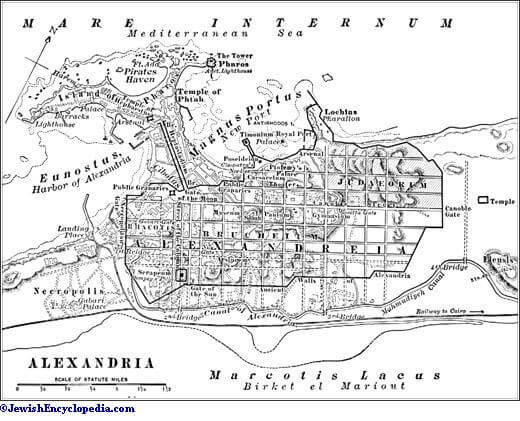This list, in its two parts, seeks to examine the various dimensions that sink into the issue of gymnasium education among the Diaspora of Israel in the Hellenistic and Roman periods, as a unique and instructive phenomenon

This list, in its two parts, seeks to examine the various dimensions involved in the issue of gymnasium education among the Israeli diaspora in the Hellenistic and Roman periods, as a unique and instructive phenomenon, which is nourished by two fundamental foci (having a political, social, economic and cultural cross-section), intertwined together in a dynamic treatise: the desire the Jewish in obtaining civil status in the cities of the polis and the process of Hellenization that befell the people of Israel during these periods.
Diaspora Jewry was well exposed to the radiation of the Hellenistic culture, including the extent of the dominant influence of the Hellenistic physical culture, and this is because the gymnasium system served as the goldsmith's mark of the Hellenistic culture and was a solid support in the historical development of the city of the polis. And not even this but this - the desire of the Jews to receive civil rights and the struggle that was waged for this purpose was integrated into the Hellenization process that befell Judaism. This dynamic served as a solid lever for finding an interest in physical culture and taking an active part in it. Moreover, this complexity was accompanied by an interesting Jewish navigation between the classical confrontations - that is, the Hellenistic central government and the authorities of the polis cities.
In one of the previous chapters we dealt with the right to receive the oil for free by the heads of the gymnasium for the Jews of Antioch - the center of the Syrian-Seleucid government, by order of King Seleucus I Nikator (281-301 BC), when the conclusion led to Jewish activity in the Hellenistic gymnasium. Then we emphasized the fact that this right unfolded over the years until the time of Roman rule in Syria (since 67 BC) and we even emphasized the connection between the Hellenistic-sports reform on behalf of Yeson in Jerusalem and the "Antiochians".
During the period of Roman rule in the entire Mediterranean basin, we witness more evidence regarding the involvement of Jews in sports activities in the cities of the polis, mainly in the prosperous Jewish community in Alexandria, Egypt. This benefited from a scroll of civil rights that was showered upon it by the special policies of the Hellenistic rulers, from the time of Alexander the Great onwards. Ptolemy II, "Philadelphus" (246-284 BC) granted status including political privileges to the community of Alexandria. During his reign, Alexandria was one of the pillars of Hellenistic culture in the East, and its Jewish residents, especially members of the aristocratic class, were greatly influenced by the flourishing Hellenistic culture. Moreover, from this period on, the Jews demonstrated a great deal of loyalty to the Ptolemaic government and helped him in various ways, the result of which was an improvement in their status and prestige.
The data presented so far, the essence of which is the crowning of the Jews with civil rights, was enough to support the assumption, similar to the bill of rights granted at the time by Seleucus I to the Jews of Syria in general and the Jews of Antioch in particular, that the Jews of Alexandria took part in the life of the urban gymnasiums for all intents and purposes, as required by the principle of legal-juridical limitation which was conditional on receiving civil rights in gymnasium education. However, we will probably not be satisfied with "beliefs", but we will look for more relevant and probably solid data.
Well, after the death of Ptolemy IX, "Ptolemaeus", in 80 BC, Egypt came under Roman influence, although it was 50 years before the Roman occupation. The Jews of Alexandria lent a helping hand to the Romans (betrayal? This is already a question of "geography and pornography"), in the political and military spheres, from the time of Julius Caesar onwards, and as a result won political rights in return. From 30 BC onwards, when Egypt became a Roman province, the Roman rulers (Augustus and his successors) used to approve scrolls of civil rights for Jews.
During this period, gymnasium education became a dominant touchstone and a necessary precondition for civil stratification, and for this reason the Roman supervision of the gymnasium system was increased (let's not forget the political and economic aspects that were assimilated into it), and such learning, for the graduates of the gymnasium (i.e., the Alanas) and only for them (Bani the social section, the aristocratic) was allowed to take part in the filling of administrative and economic positions in the city of the polis. Hence, we will be able to understand and correctly measure the importance of Gimahssion education in the eyes of the relevant Jewish public.
It is true that the aforementioned Roman stipulation was not a novelty, which the Romans brought to the East and internalized it among the cities of the polis. The Romans copied the model as was accepted for centuries in their city mosaic. However, they deepened the principled conditioning more and more, also out of their belief that in this way they would firmly tighten

2 תגובות
Your use of the word gymnasium is interesting, I assume it refers to both senses of the term..